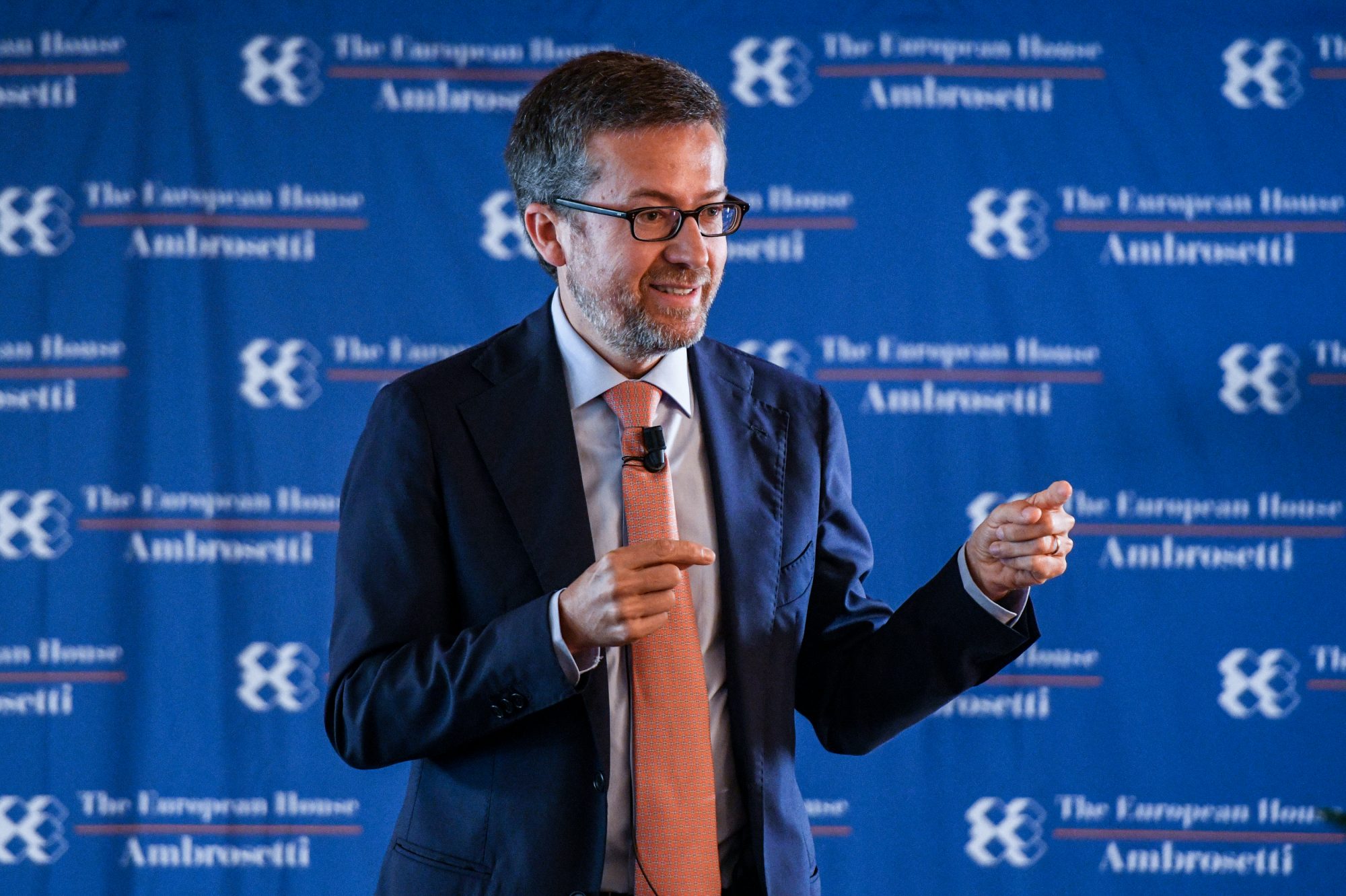Carlos Moedas, Commissioner for Research, Science and Innovation believes that science and innovation are vital for the future of Europe, more of which is detailed here
Carlos Moedas, Commissioner for Research, Science and Innovation has a number of important responsibilities. One is promoting the international excellence of the research and science in the European Union (EU), as well as strengthening research capacities and innovation across all Member States. Another is ensuring that research funding programmes, in particular, Horizon 2020, contribute to the European Commission’s jobs, growth and investment package.
In addition, it is worth mentioning that Commissioner Moedas is also responsible for evaluating how EU funded research can be used in a more effective way and ensuring that proposals by the European Commission are based on scientific evidence. A way in which the many challenges faced by society can be met is to encourage private companies to apply research in this direction, and also creates more high-quality jobs. 1
Clean energy technologies
An example of the latter point can be found when in early October 2018, when the European Commission and Breakthrough Energy signed a Memorandum of Understanding to establish Breakthrough Energy Europe (BEE). In essence, this is a joint investment fund to assist innovative European companies develop and bring to the market radically new clean energy technologies.
Commissioner Carlos Moedas comments on the benefits of the BEE: “We are delivering on our commitment to stimulate public-private cooperation in financing clean energy innovation. The €100 million fund will target EU innovators and companies with the potential to achieve significant and lasting reductions in greenhouse gas emissions.”2
Science and innovation
In a lecture at Sciences Po on 6th December 2018, Commissioner Moedas says that science and innovation are very important subjects for politicians today. He believes that these topics are vital for the future of Europe, not only for scientists and innovators but also for the decision-makers of the future. Moedas then explains the link between a wider aim of the European Commission detailed at the beginning of this article and the policy area of science itself: “Jobs and growth are impossible without science at the centre of political priorities. They are about the direction that Europe will take in the future”
Moedas then underlines that in Europe, politics and science and innovation should work in the same way, by which he means they should strengthen each other to create the best outcome. In the view of Moedas, there are three changes needed for the science and innovation landscape in the future, which are: (i) To increase collaboration; (ii) more work at the intersection of disciplines and; (iii) more disruptive innovation.

The intersection of disciplines
Let’s take a look at one of those three areas, the intersection of disciplines. During the past, people were classically trained in disciplines, for example, you could be a physicist or a geologist. Moedas strongly believes the intersection of disciplines is where the magic happens. He cites the example of Tu Youyou who won the Nobel Prize for Medicine for her discovery of Artemisinin, a drug to fight malaria a few years ago. She had no medical degree, no doctorate and had never worked abroad Moedas explains before offering his further thoughts on the work of this remarkable scientist.
“She’s possibly the furthest idea of what we imagine when we think of a Nobel Prize-winning scientist.
“So how did she do it? She worked at the boundaries of different disciplines. She pored over ancient Chinese texts and historical documents. And one day she found a reference to one substance, sweet wormwood, that had been used in China almost 2,000 years ago to fight malaria. That’s what led to her breakthrough.”
So, in the view of Moedas, working at the intersection of disciplines means for most people, taking a step outside their comfort zone. Certainly, for Tu Youyou, ancient Chinese literature led her and the world to one of the most significant breakthroughs of this century. Such an approach should be the rule, not the exception, Moedas notes.
In a High-Level Conference: Sustainable and Circular Bioeconomy, the European Way, Brussels on 19 October 2018, Moedas draws our attention to the fact that the light bulb is now 139 years old and takes us back to the time when Thomas Edison and his team created the first commercial incandescent light bulb. “To build it Edison needed a team of people from all areas: a physicist, a machinist, an engineer, a carpenter, a glass blower, a blacksmith.” It struck me that an intersection of disciplines was very much present in this example of an invention that has had an enormous impact on society. 3
Disruptive innovation
Let’s take a look at another one of those three areas, disruptive innovation, which relates to my earlier point about the invention of the light bulb. In his speech, Moedas notes that incremental innovation benefits Europe daily but highlights that these technologies are not delivering on their promise of gains in productivity for Europe. Moedas calls for Europe to reconnect innovation and productivity by multiplying its impact, which can be achieved by disruptive innovation. Moedas then provides more detail about what he means by disruptive innovation, asking us to think about electrification, which early last century was one of the most disruptive technologies to be discovered. This was not just because it made factories much more productive but it had a knock-on effect that completely revolutionised the industry, Moedas notes.
“Think of it like this: before, manufacturers had to rely on steam engines. But with electrical motors, it meant fewer inputs for much higher energy output. And of course, this was a positive outcome.
“Before, a single massive steam engine powered a factory. With electricity, people could target power more precisely. For the first time, it was efficient to have a series of small motors, and this created the production lines. That led to the architecture of the space being changed. Wires meant that work stations could be placed anywhere.
“And the speed of the production process also completely changed. It was no longer determined by the steam engine but by the workers themselves. Factories could get their goods out to the market far quicker than their rivals. So they were more competitive. So when you take all of these changes into account, the entire ecosystem was disrupted.
“Right now, disruptive, market-creating innovation, has the greatest potential for growth in Europe. We should be investing in it. That’s exactly what we are trying to do with the European Innovation Council. But Europe needs to do more.”
Changing the way we educate in Europe
Moedas concludes the lecture he gave at Sciences Po on 6th December 2018, by explaining that changes in the science and innovation ecosystem of Europe can only happen if we shift our way of thinking and working. Certainly, such a shift can only be achieved if we change how we educate, something that implies a political change in society. Moedas then details precisely how Europe’s future is intrinsically linked to the future of science and innovation. Having said that, the trends now being seeing now mean that a shift in how we understand education in society is very much needed. Education is an incredibly powerful tool and during the 1870s, France emerged out of war into a new world, Moedas notes.
“It was the time for a change in how each successive generation of politicians learned. Because there those at the time knew that there was a shift in society, and that shift demanded a new way of teaching French politicians and diplomats in order to secure a strong future.”
Moedas says that education held the power to create a shift in society and that today, the same is needed from future political decision-makers. 4 As we have seen in this article, science and innovation are vital topics for the scientists, innovators and decision-makers of the future. Innovations such as the light bulb changed the world and future innovations could have the same impact but making sure we use the powerful tool of education is vital in such endeavours.
References
1 https://ec.europa.eu/commission/commissioners/2014-2019/moedas_en
2 http://europa.eu/rapid/press-release_IP-18-6125_en.htm
4 https://ec.europa.eu/commission/commissioners/2014-2019/moedas/announcements/lecture-sciences-po_en
Open Access Government











